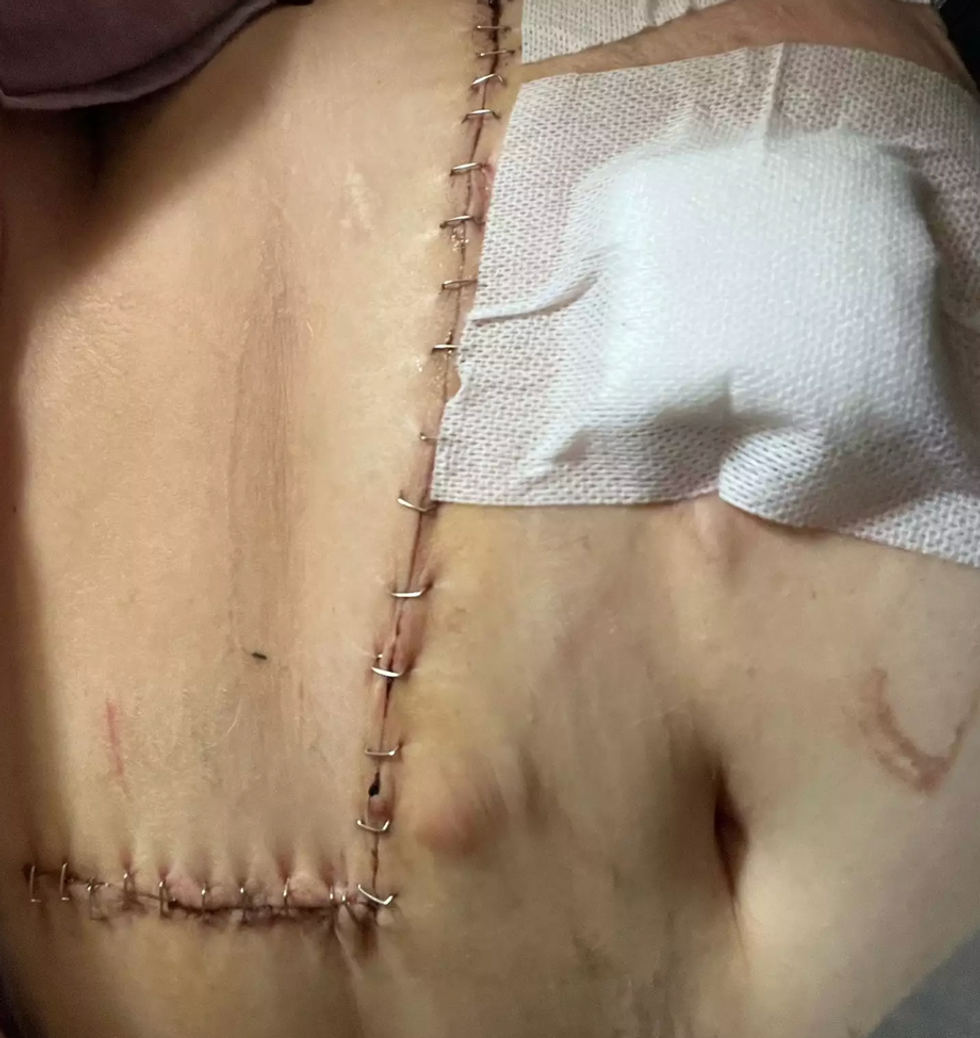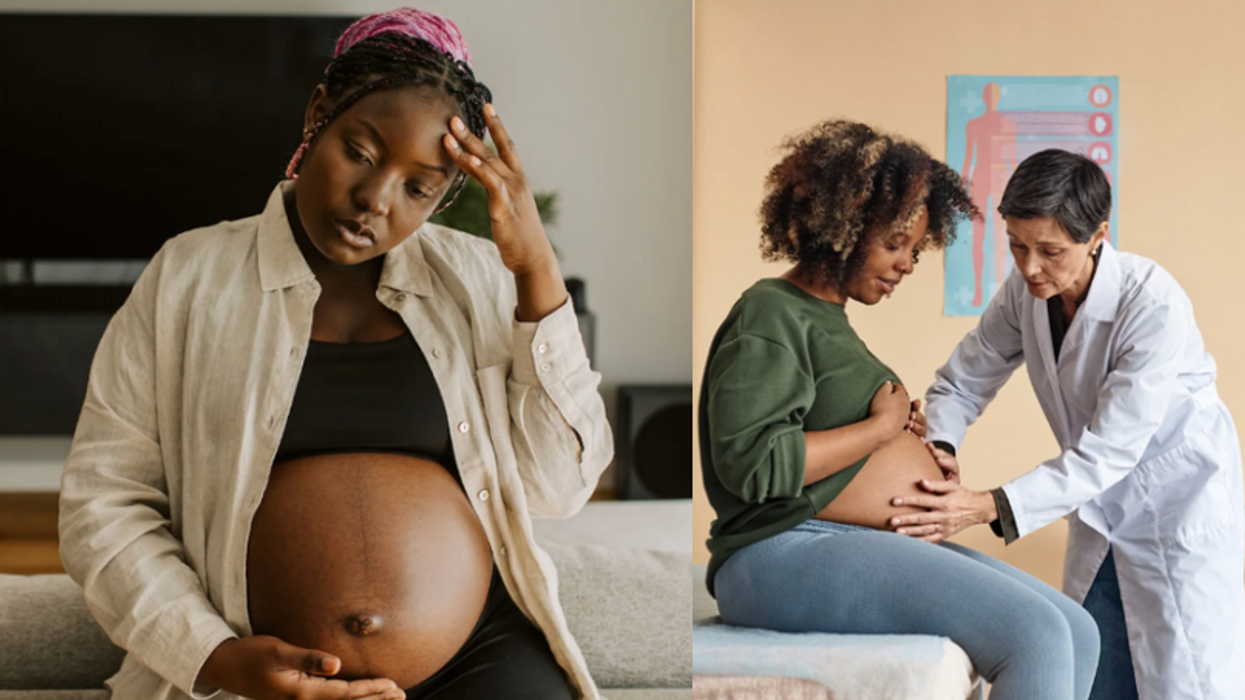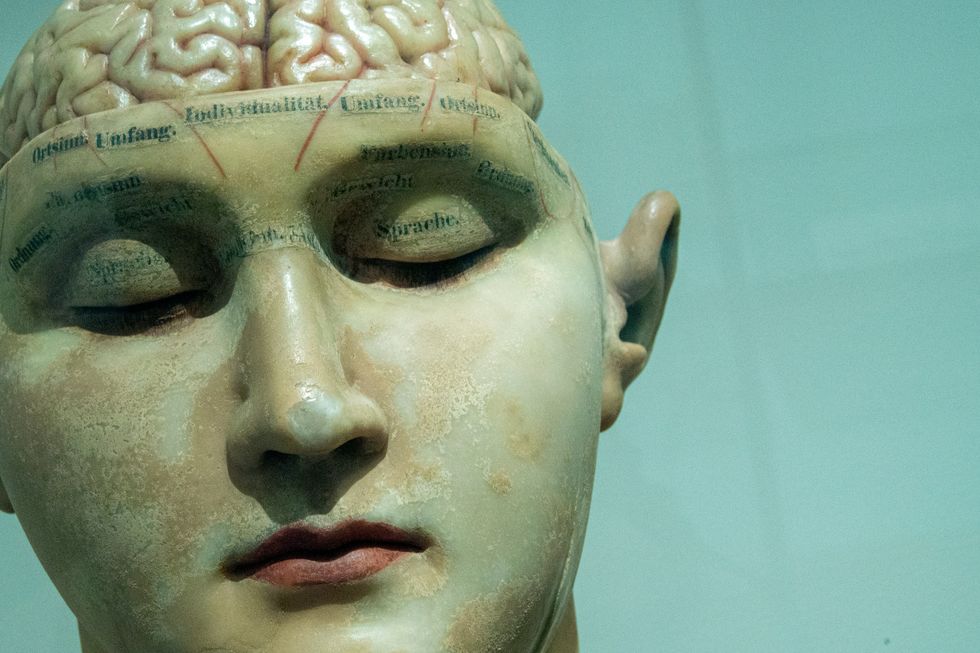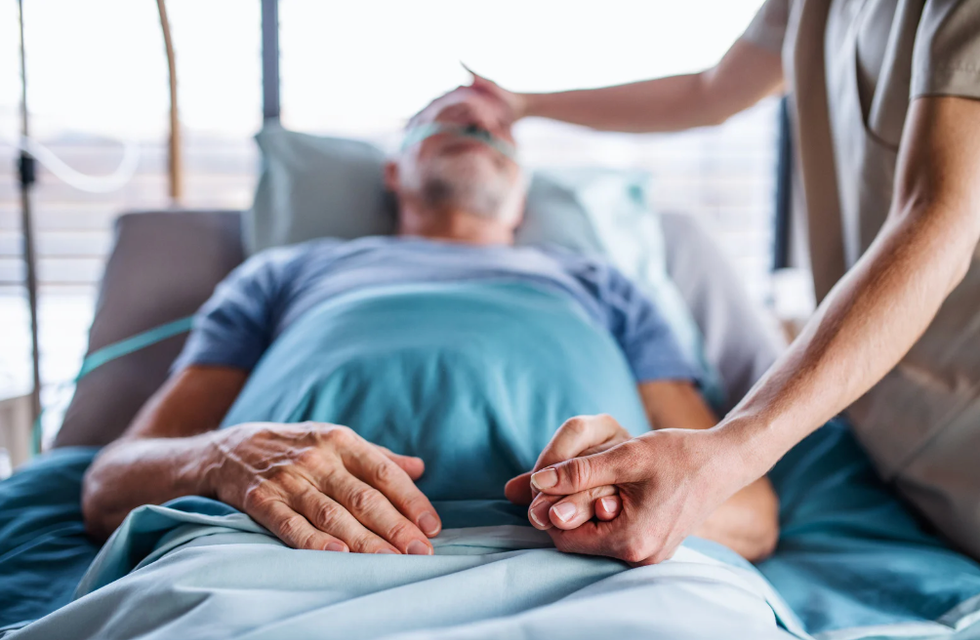In 2019, Sydney Stoner was 27 years old, just married, and had such immense stomach pain that she was collapsing at work. Doctors dismissed her concerns, saying that it was “that time of the month” or that she was too young for anything serious to happen to her. The pain had gotten so bad in 2020 that she lied to her doctor that she had blood in her stool, forcing them to refer her to a specialist and get a colonoscopy. That’s when they found the cancer.
When Stoner went in for the procedure, the doctors struggled to complete it as they found a five millimeter tumor blocking the pathway to her colon. At 27, she was diagnosed with Stage 4 bowel cancer, which had spread to her liver and lungs. The average woman doesn’t get regular colon cancer screenings until age 45. Had Stoner not lied to her primary care physician, she probably wouldn’t be here today.
"Doctors said I was too young but I probably would have died before I made it to the screening age of 45,” she told The Daily Mail. “It was very frustrating.”
According to University of California Davis and other sources, colorectal cancer is the number one cause of cancer death for men under 50 and number two for women in the same age range. In fact, people born between 1981 and 1996 for some reason have twice the risk of developing colorectal cancer than people born in 1950. Doctors and scientists haven’t found out exactly why there is an uptick in colorectal cancer diagnoses within younger people, but the fact that it’s become more common is true and troubling.
Stoner is one of the luckier younger people that got her diagnosis early enough that it wasn’t a death sentence. She was able to get the tumors growing in her colon and her liver surgically removed, and is considered stable after 23 rounds of chemotherapy. She is still lucky in that she is alive, however much of her recovery and healing would’ve been less intense had her doctors originally listened and she got treated correctly right away. Stoner has since encouraged others to argue and fight for their health.

“I know it's difficult but keep advocating for yourself because no one else is going to get that done for you,” she said. "Find a new doctor, or whatever that may be. Find someone to listen to you because I know people that were diagnosed at 18 years old. The screening age needs to be lower or there shouldn't be one at all.”
A 2022 poll found that 52% of patients felt “ignored, dismissed, or not believed” when seeking medical treatment from their physician. This is especially an ongoing issue with women like Stoner who have had their pain dismissed by physicians as period pain, menopause, or some other issue when it turned out to be a serious deadly disease. There is even a term for it called “medical gaslighting.”
If you don’t feel you’re being heard by your doctor, there are some ways to help further advocate for yourself and get the treatment you need. Bring a family member or partner with you to the doctor to help act as your “lawyer” to advocate for help and as a witness to your pain. Prepare yourself for each appointment with questions ready to ask and be prepared to be vulnerable with your doctor to really drive home what you’ve been experiencing. If you don’t agree with what your doctor is diagnosing and you feel like your concerns aren’t being heard, tell them that directly and ask for further clarification if you have further questions. If you’re not making progress after two to three visits, you could consider finding a new physician.

While it’s recommended to follow your doctor’s advice, it’s also important to speak out for yourself and advocate for proper care if something still doesn’t feel right.
















 You cannot be too careful when trying to prevent the spread of the flu.Photo credit: Canva
You cannot be too careful when trying to prevent the spread of the flu.Photo credit: Canva
 Big Brain GIF by Jay Sprogell
Big Brain GIF by Jay Sprogell
 Shake It Off Wet Dog GIF by BuzzFeed
Shake It Off Wet Dog GIF by BuzzFeed
 Working out with friends also makes exercise more enjoyable (and feel quicker).Photo credit: Canva
Working out with friends also makes exercise more enjoyable (and feel quicker).Photo credit: Canva
 People with Imposter Syndrome can't accept their achievements.
Photo by
People with Imposter Syndrome can't accept their achievements.
Photo by  Emotion Feeling GIF by Quilt
Emotion Feeling GIF by Quilt Psychologist - Free of Charge Creative Commons Notepad 1 image
Psychologist - Free of Charge Creative Commons Notepad 1 image
 Human anatomy model.
Photo by
Human anatomy model.
Photo by 
 Socks warm your feet, but cool your core body temperature.Photo credit: Canva
Socks warm your feet, but cool your core body temperature.Photo credit: Canva
 A new t-shirt could open up more hospital beds for patients.Photo credit: Canva
A new t-shirt could open up more hospital beds for patients.Photo credit: Canva Wearable solutions could be revolutionary.Photo credit: Canva
Wearable solutions could be revolutionary.Photo credit: Canva Many wearable tech devices could help you monitor your health.Photo credit: Canva
Many wearable tech devices could help you monitor your health.Photo credit: Canva